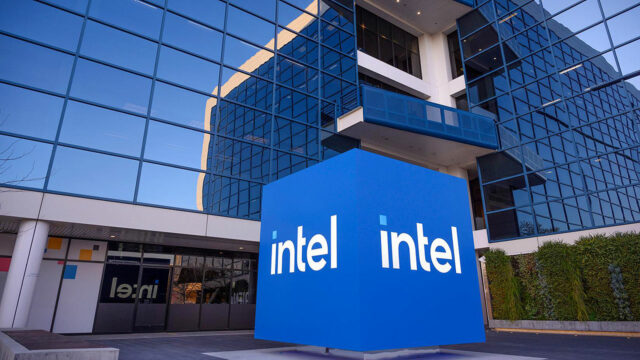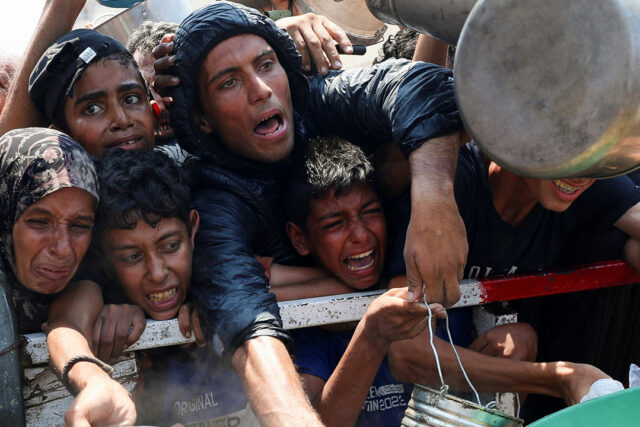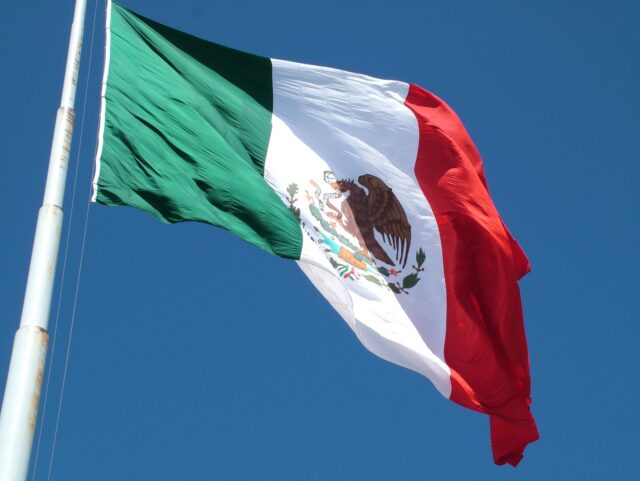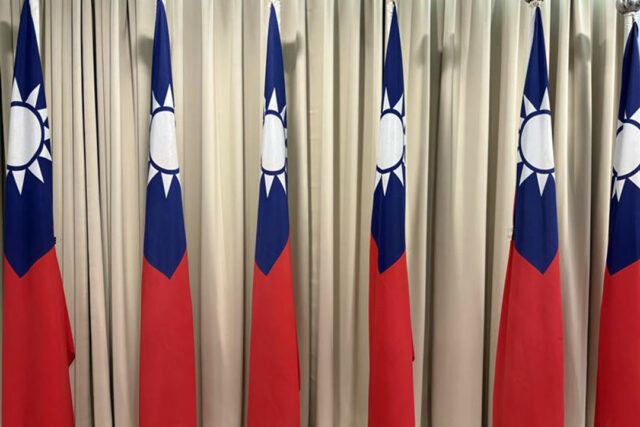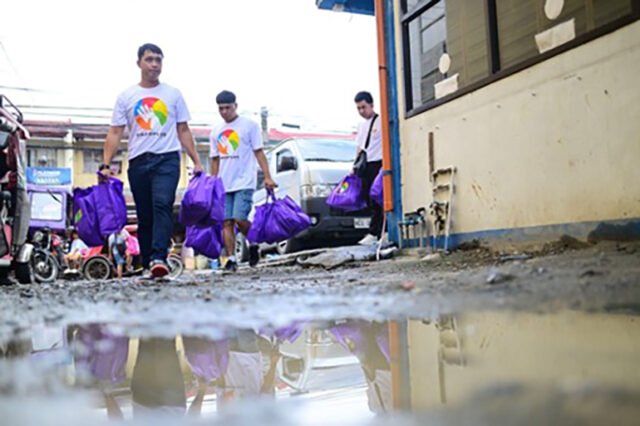URUAPAN, Mexico — As broadcasters declared Donald J. Trump the next President of the United States, Sonia Coria turned to her husband and asked if they should go home.
For seven months they had been living in Glendale, Arizona, sharing a two-bedroom apartment with Coria’s aunt and slowly building a life far from the threats and cartel violence that made them flee Mexico.
Coria, 25, took odd jobs as a cleaner and her husband, Carlos Leon, also 25, worked as a gardener. Their eldest child Naomi, eight, was going to a local charter school, making friends and picking up English. In the small kidney-shaped pool of the condominium building where they lived, she had learned to swim. Little Carlos, five, was learning to ride a bike.
Their neighborhood in western Glendale — a city of some 250,000 people just outside Phoenix — was home to lots of Mexican migrants. Opposite their apartment block was a small butcher, Carnicería Uruapan, named after the town they had fled in the dangerous Mexican state of Michoacan.
They had bought their first car on installments — a tan-colored 2008 Ford F-150 pickup truck that cost them $4,000. They were still poor, sometimes going to soup kitchens for a meal or picking up appliances and toys that neighbors had thrown out, but it was a life they could only have dreamed of back home in Mexico.
Mr. Trump’s campaign, and his victory, changed how they felt about living in the United States. They had followed the law, entering the United States at a border crossing and applying for asylum. The application was in process. But they now worried they could lose everything.
“We run the risk of them taking away the little we’ve managed to scrape together,” Coria remembers telling her husband that night as election coverage played on the television.
Leon nodded and hugged his wife. They began to cry quietly, afraid Carlos and Naomi would hear them as they played on the floor in the bedroom they all shared. The kids had been allowed to stay up late, so that Coria and Leon could watch the results come in.
The family’s account is based on interviews with Leon, Coria and NGOs that helped them on their return to Mexico. Reuters was not able to verify all details of their journey, but core facts were supported by photos, videos, messages, and customs documents the family shared.
As the Trump administration vows to enact the “largest deportation operation in American history,” authorities have raided workplaces, sent alleged Venezuelan gang members to a notorious prison in El Salvador, and deployed National Guard and active-duty Marines to contain anti-government protests in Los Angeles.
Beyond the 239,000 people the administration has deported so far, some cuffed and led on to planes, the very public expulsion of migrants has had another effect: triggering tough and complicated decisions in immigrant households across the US on whether to stay or leave.
As they discussed returning to Mexico, Leon set one condition: That they wait until after Trump took office on Jan. 20, to save up some more money and to see if he proved as hardline on migration as he’d promised.
In the end, fear led them to leave before Mr. Trump had even been sworn in.
‘PROJECT HOMECOMING’
Despite high-profile deportations to Guantanamo or El Salvador, the total number of deportations under Mr. Trump trails former President Joseph R. Biden’s last year in office.
Increasingly, persuading migrants to leave of their own accord has become a core strategy.
“Self-deportation is safe,” reads a Department of Homeland Security (DHS) flyer on display at immigration courts in the US “Leave on your own terms by picking your departure flight.”
The Trump administration in March launched an app called CBP Home designed to help people relocate and in May, Mr. Trump unveiled “Project Homecoming,” a sweeping initiative that offers “illegal aliens” $1,000 and a free flight to leave.
Since then, “tens of thousands of illegal aliens” self-deported through CBP Home app, a DHS official told Reuters, without giving further details.
More than 56,000 Mexicans have voluntarily returned from the US since Mr. Trump returned to the White House, according to Mexican government figures. Figures from last year were unavailable.
Self-deportation is not a new idea. During the Great Depression and again in 1954’s Operation Wetback, US deportation campaigns pressured over a million Mexicans and Mexican-Americans to leave — far more than through formal deportations.
“Self-deportation is not an accident, but a deliberate strategy,” said Maria Jose Espinosa, executive director at CEDA, a non-profit organization in Washington that works to improve relations between the US and Latin American countries.
‘LEFT WITH NOTHING’
On Jan. 19, Coria, Leon, and the two kids packed what they could fit into their F-150 and drove toward the Mexican border. It was just a three-hour drive.
A few weeks before, they had witnessed immigration enforcement detaining the father of a Mexican family living two doors down from them. That, Coria said, had made up their minds.
A lawyer they saw at the Mexican consulate in Phoenix reinforced their view, telling them that their asylum application was weak and they would likely be deported.
The consulate told Reuters the lawyer, Hugo Larios, did on occasion offer free consultations, but they did not have access to details of what was discussed or a record of the Coria-Leon family visiting in January, only in April 2024. Larios did not respond to requests for comment.
It was a hard decision to leave. They had fled their hometown in February last year after armed men claiming to be members of the notorious Jalisco New Generation Cartel began showing up at the avocado farm where Leon was working as a guard, demanding protection money. Leon didn’t have the money to pay, and the owner was away.
Now, they were going back.
Uruapan is one of the most violent cities in the world, with an official murder rate of nearly 60 per 100,000 inhabitants. In recent years organized crime has taken over the area, running or extorting farms and businesses and killing those who refuse to pay.
But the family hoped their savings would make a difference. They had managed to scrape together $5,000 and the plan was to buy land and open an auto repair shop using their pickup truck to help with the business.
At 5 p.m., on Jan. 19, they drew up to the Dennis DeConcini border crossing at Nogales.
As they passed Mexican customs, the Mexican National Guard stopped their vehicle and asked for papers, the family said.
Leon didn’t have the car title, just a temporary permit issued that day, so officials confiscated the truck and threatened to arrest him for vehicle smuggling. The officials also took $5,000, the family’s entire savings, for what they called a fine before Leon could go free.
With no car and no money, Coria, Leon, Naomi and Carlos sat on the ground outside customs, surrounded by their remaining possessions — 100 kilos of clothing, tools, kitchen utensils, a television, refrigerator, and children’s toys.
“We lost everything,” Coria recalled, in tears. “We left with nothing and came back worse off.”
A spokesperson from Mexico’s National Customs Agency declined to comment on the specifics of the Coria case. She said in an e-mail to Reuters that its office “acts in strict adherence to the legal framework governing the entry and exit of merchandise, as well as the customs control applicable to persons and vehicles crossing points of entry into the national territory.”
Mexican President Claudia Sheinbaum told journalists this month that her government is strengthening its “Mexico Embraces You” program to receive Mexican migrants voluntarily returning from the US to ensure “they are not subject to any act of corruption by customs or immigration when they enter our country.”
The program offers a $100 cash grant, job placement, free transportation to their places of origin, and facilities for importing goods, but the family returned before it went into action.
As the sun began to set, the dry desert air turned cold. The family worried about where to spend the night and how they would reach Michoacan, some 2,000 kilometers away. They were spotted by Francisco Olachea, a nurse with Voices from the Border, a humanitarian organization that works on both sides of the border.
Olachea remembers approaching the crying family outside customs and offering them a hand. They loaded the Corias’ belongings onto the NGO’s ambulance and a rented pickup truck paid for by Olachea and another NGO, Salvavision.
That night, Olachea took them to NANA Ministries, a Christian organization in the border town of Nogales. They were offered water, fruit, coffee, and pozole, a traditional Mexican broth made from corn kernels with meat and vegetables. The four spent the night in a small room.
Together, Voices from the Border and Salvavision raised just over $1,000 to buy the family bus tickets to Michoacan and send some belongings to Sonia Coria’s mother’s house in black garbage bags. What they couldn’t send was donated to the church where they had spent the night.
On Jan. 20, the family returned to Uruapan.
The four of them shared a small room with no door in the tin-roofed home belonging to Coria’s mother. The couple slept on the floor, and the kids shared a bed with no mattress. They later moved into an even smaller room at an aunt’s house.
Leon eventually found work in a car repair workshop. Coria got a job in a Chinese restaurant. The children complain about leaving the United States. Carlos asks for his bike; Naomi is forgetting her English.
In June, a 62-page letter from customs seen by Reuters informed them that their truck had been seized and had become property of the federal treasury. Also, that they owe the equivalent of $18,000 in customs duties for bringing in the F-150 to Mexico. — Reuters


